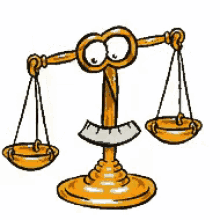Ethic 1: Utilitarianism

Definition: Moral theory that states morally right actions are those that create the most “good” in the world.
In utilitarianism, any means is justified for a greater end, and thus consequences matter more than intentions. The most important end here is to increase happiness for the most amount of people possible. Because everyone's happiness is weighted equally, the more people that are happy from an action, the more right that action is.
Potential Strengths:
- Everyone's happiness is counted equally, so no one's happiness matters more than another.
- Because it's based off of consequences, one is able to see the morality of an action through an action's results in the real world.
Potential Weaknesses:
- Though some things can indicate happiness, it can be difficult to specifically measure happiness in the real world, let alone the happiness that results from a specific action.
- One may be forced to sacrifice one's own desires in order to benefit/increase happiness for more people.
- One may be forced to carry out an immoral action as a means to a greater end.
- Would you murder or steal from someone if it made three other people happy?
Next: Deontology
Home
